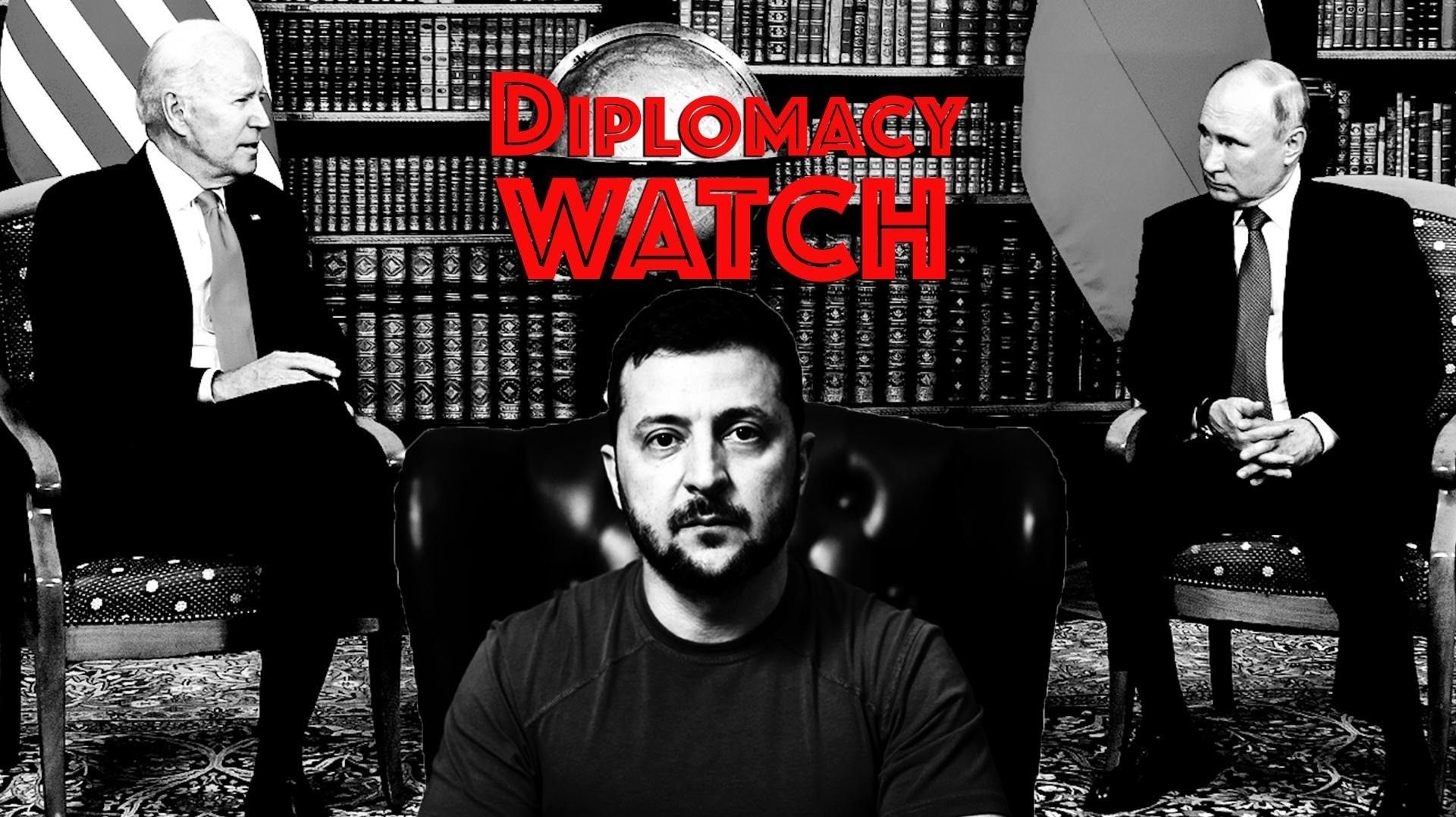A Russian cruise missile sailed through Polish airspace for 39 seconds Sunday on its way to strike the western Ukrainian city of Lviv, causing Poland to activate fighter jets and prepare to shoot down the missile if it lingered on the wrong side of Ukraine’s border.
Polish authorities quickly summoned Russia’s ambassador for a traditional diplomatic dressing down. In an unexpected turn, the Russian envoy dodged the summons. The snub rankled Polish leaders, who promised a response to Moscow’s “sign of contempt.”
That response came Tuesday, when Andrzej Szejna, Poland’s deputy foreign minister, said NATO is “analyzing different concepts, including that such missiles should be shot down when they are very close to the NATO border.” (Szejna did note the potential for “international consequences” in retaliation for such a move, an apparent euphemism for escalation with Russia.)
The Polish prodding is the latest indication of how European leaders, wary of Ukraine’s worsening battlefield position and angry at Russian transgressions, have begun to entertain a more direct role in the war. Take French President Emmanuel Macron, who doubled down earlier this month on his refusal to rule out sending French troops to Ukraine.
“Today, to have peace in Ukraine, we must not be weak,” Macron said in an interview for French television. The French leader argued that such a move was not yet necessary, an apparent response to Germany and other NATO allies anxious to avoid encouraging a direct confrontation with nuclear-armed Russia.
While these plans risk dramatically escalating the war, they are rooted in a sincere assessment that Ukraine has started to lose its edge on the battlefield. Ammunition shortages have forced Kyiv to ration shells while Moscow continues firing apace. If the U.S. House manages to pass a bill to send Ukraine more arms, new shipments would take time to reach the front lines. And that’s a big “if” given Speaker Mike Johnson’s (R-La.) apparent skepticism about the merits of Ukraine aid.
All of this doomsaying has taken a toll in Ukraine, where draft dodging has accelerated even as the legislature considers a measure to significantly expand military mobilization efforts. “You have officers going on television saying if we don't get more money and ammunition from the United States and Europe everyone at the front is going to get killed in a matter of weeks because the Russians produce many drones and have more shells,” a Ukrainian lawmaker lamented to Politico.
This points to a difficult conclusion. After more than two years of war in Ukraine, Kyiv’s key goal — expelling Russia from the entirety of its territory — appears increasingly unlikely. As Ukraine’s chances for success drop, the West is left with three bad options: Double down on a losing strategy, push Kyiv to make difficult concessions at the negotiating table, or enter the war directly on Ukraine’s behalf. The window to make a decision is rapidly closing.
In other diplomatic news related to the war in Ukraine:
— In some much-needed good news for Kyiv, a major European Union parliamentary group invited Ukrainian President Volodymyr Zelensky’s party to join some of the coalition’s events, giving Ukraine a dry run of EU membership, according to Reuters. “We do not have to wait until an official observer status is granted to seriously start working together,” said a lawmaker from the center-left Renew group. As part of the partnership, Renew will also give Zelensky’s Servant of the People party expert advice on the arduous EU accession process, which will require Kyiv to undergo significant internal reforms before joining the bloc.
— Ukrainian Foreign Minister Dmytro Kuleba visited India Thursday in an effort to get New Delhi’s support for Ukraine’s peace formula, which calls for a return to Ukraine’s pre-2014 borders and accountability for Russian leaders involved in the invasion, according to AP News. Kuleba’s visit comes just days after Indian Prime Minister Narendra Modi spoke separately with Zelensky and Russian President Vladimir Putin and called on the leaders to pursue peace talks.
— A top Russian diplomat accused Switzerland of losing its neutral status and said he does “not see any possibility” that Swiss-led peace talks could succeed in ending the war, according to Anadolu Agency. “Bern unfortunately devaluated its status as a neutral state” by freezing billions of dollars in Russian assets following the invasion of Ukraine, argued Gennady Gatilov, Russia’s envoy to the United Nations in Geneva.
— U.S. officials are pushing Ukraine to stop attacking Russian oil refineries in order to avoid driving up oil prices and escalating the war, according to the Financial Times. Kyiv responded to the report by saying that “we understand the appeals of our American partners,” but “we are fighting with the capabilities, resources and practices that we have today.” State Department spokesperson Matthew Miller refused to comment on the details of conversations related to the refinery strikes but added that “it has always been our position since the outset of this war that we do not encourage or support Ukraine taking strikes outside its own territory.”
U.S. State Department news:
In a Monday press conference, Miller told reporters that the U.S. will support whatever path Ukraine chooses to take when Zelensky’s presidential term ends in late May. “This isn’t a question that’s unique to Ukraine; it’s a question that pertains to any country that is in the middle of a war, especially when you don’t just have the question of soldiers on the front lines being able to vote – you have the question of how you deal with these occupied territories where the Russian military is occupying Ukrainian land and would prevent Ukrainian citizens from making their voices heard in the election,” Miller said. “Ultimately, it’s a decision for the Ukrainian people to make.”
- Biden warns of NATO war with Russia if aid disappears ›
- I was there: NATO and the origins of the Ukraine crisis ›
- Is Emmanuel Macron leading Europe's last stand? | Responsible Statecraft ›














